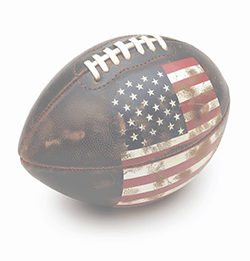Squash

INTRO
Source: https://csasquash.com/about/playing-in-college/
Playing college squash is the highlight for many squash players’ careers. The opportunity to play competitive squash, while also receiving an excellent education from some of the country’s best colleges and universities is a phenomenal experience and a great privilege. Competing in your individual sport while training and competing in a team environment is also what makes college squash so special. Although this can be a new experience for many, the relationships and friendships made during one’s college squash career can last a lifetime.
During the 2019-2020 season,
- 70 institutions fielded men’s teams
- 48 institutions had women’s teams
- 36 of the men’s teams were varsity teams supported by that school’s athletics department
- 31 women’s teams had varsity status.
- The remaining teams are club teams run predominantly by student groups on campuses.
- There are only few schools offering squash based scholarship but many offer financial aid packages based on merit or need.
The College Squash Association (CSA) is the governing body overseeing men’s and women’s intercollegiate varsity squash in the United States.
Squash is played at some of the top colleges and universities in the United States, and students should be prepared for rigorous academics wherever they play. The best way for any aspiring college squash player to prepare for college is to work hard in high school. Nothing will increase a player’s chances of getting into a top college more than earning the best grades possible in the most challenging courses possible, along with having reasonably good SAT or ACT scores. College is an academic challenge, and schools look for applicants who have demonstrated a commitment to challenging themselves academically in high school.
The Season: College squash is a winter sport. Team matches start in mid-November and culminate in the end- of-season National Team Championships in late February. At many schools, the main part of the season falls during the winter intersession between the fall and spring semesters, with the championships in the first part of the spring semester, making squash a great sport for student-athletes.
Teams: Team rosters typically range in size from 10 to 20 players. In intercollegiate matches, schools play their top ten players against their opponent’s top ten. Only the top nine results count, with the number ten match being played as an exhibition. Most college teams will play anywhere from 10 to 20 matches a year, mostly on weekends.
Matches: In college squash team matches, nine players compete in individual dual matches to determine the final team score. Teams often play an exhibition match between tenth players on each team. To maintain a full scoring roster in matches and account for potential injuries or other factors, teams often have at least 12-14 team members.
Practices: Teams usually begin formal practices by mid-October to early November. Most teams, however, start “captain’s practice” as soon as they return to campus in the fall. Practices are typically for two hours each day, five or six days a week. Being on a college varsity team is a big commitment. Depending on the time of year, the number of hours dedicated to squash and training can vary due to league rules; however, coaches do expect that you are committed year-round to bettering yourself and improving your game. Expect that you will be having daily practices and/or strength and conditioning sessions in addition to your matches throughout the year, in some cases having multiple sessions a day. Team captains will run captains’ practices prior to their official practice start dates. When in the playing season, expect to have several weekend trips where you will play 2 matches or more, depending on your team’s schedule.
Colleges give credit to students who have demonstrated success in squashon a national or international level. If a student is ranked #5 in the country in squash, it has clearly taken a lot of time away from studying to accomplish it. If that student has a strong academic background as well, they may be admitted before a student with only a strong academic background.
Some colleges hope to enroll anywhere from three to five squash players a year, while others may hope to enroll only one. Coaches primarily use national rankings as the first source of information for evaluating high school players. If a student wants to be recruited, they should make sure they play enough tournaments to get a good ranking, whether they play through their high school or on their own. The US Squash website is a great source for information about tournaments for junior players. Students can also send videos of themselves playing to coaches. The more information a coach receives, the better able they will be to make a good decision about whom they will support in the admissions process.
High School and College squash players can play in professional tournaments and still keep their amateur status for college athletics. A PSA who earns any prize money in tournaments should keep detailed records of the prize money won and the expenses paid in relation to those tournaments. As the PSA gets farther along in the recruiting process, they should share these records with the college coach and, if asked, the rules compliance officer at that school to ensure that everything is permissible. The eligibility and competition rules are different across some CSA member institutions, so PSAs should share their professional playing plans with each coach with whom they are having recruiting conversations.
SQUASH RECRUITING RULES CALENDAR
You want to know more? Just register for free.
Register now
Become Visible to
US Coaches and Schools
Register and create a free profile. Both steps are required to sign up.
 Back
Back 